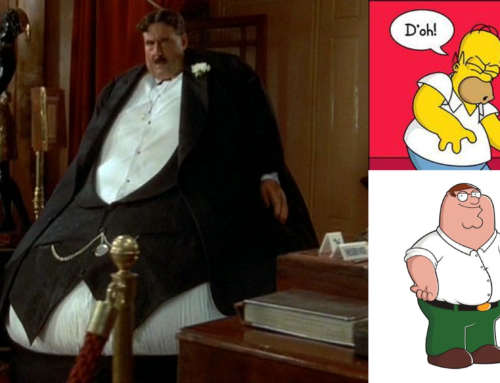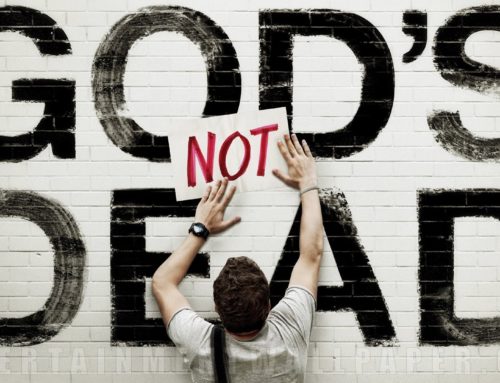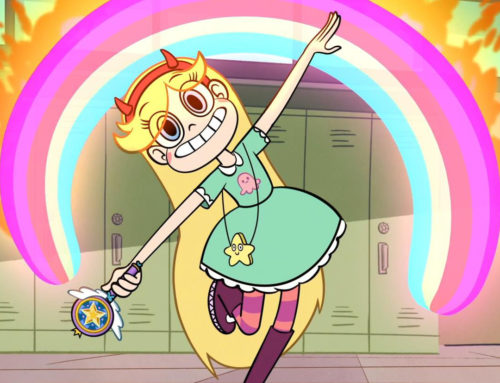Lately, I’m on a bit of a stint regarding delivering messages in your stories in writing. Today, I’m going to try and wrestle a beast that many people have already tried to hogtie: defining “propaganda.”
If you were to look up the definition of propaganda online, you’d probably get the following result:
- The systematic propagation of a doctrine or cause or of information reflecting the views and interests of those advocating such a doctrine or cause.
- Material disseminated by the advocates or opponents of a doctrine or cause.
And as you can probably already tell, these definitions are basically useless. The first one raises questions simply because the word “systematic” could mean anything from “government issued” to “a work of fiction that was copied and distributed to lots of people.” Any advertisement could qualify as propaganda. But the second definition is even weirder, because it makes no distinction of what counts as a cause, and it lumps “advocates or opponents” together. Meaning, if your story contains a cause of some kind, and your story either agrees or disagrees with it, your story is propaganda. Many people will even consider a story that shows both sides of an argument to fit the definition as well.
This basically means that any and all writing that includes any kind of important or intelligent questions or themes becomes propaganda. In fact, even documentaries that do their best to be objective, but show the actions and beliefs of people throughout history could qualify. This cannot be our definition, unless we’re willing to let go of the idea that propaganda is bad. Everyone I know thinks propaganda is a dirty word, and for good reason. If either of the above definitions for propaganda are accepted, then nearly all fiction and ALL non-fiction is propaganda, in addition to all advertisements. This ties in to one of my previous articles, where I told you that avoiding politics is impossible. Your audience will MAKE your work political in their own eyes.
Another definition I’ve seen people use is to say that something is propaganda if it tries to circumvent our reason and appeal to emotion. This is certainly a better definition, but it still has its flaws. For starters, most art is designed to appeal to emotion by default. It is designed to make you feel things, such as a beautiful painting or a tragic story. And even then, using lessons to teach through emotions cannot be bad in and of itself, at least not in the way that we usually ascribe propaganda to being.
For example, if a story tried to make the case that slavery was bad by showing what it is like to be a slave, that is not a rational argument. It might be a moral argument, but the support for the moral claim that slavery is bad is based on the emotional argument that no one would want to be a slave. A person could counter with the rationalization of “I’m rich and have important connections, so I will never be a slave. This isn’t something I have to worry about.”
Another argument I’ve seen in the game Mass Effect regarding the question of overpopulation of a race called the Krogan, who could have easily had an overpopulation explosion that another race, the Turians, decided to solve this by inflicting something called “the genophage” upon the Krogan. This resulted in only 1 in 1000 Krogan babies being viable at birth, with the other 999 being either stillborn or similarly unviable. Krogan mothers often gave birth to enough children that each family could still have a few children, but only after giving birth to countless corpses. While the Turians make a very rational argument behind their actions, the Krogan point out that the emotional toll upon their people was so great it reorganized their entire culture into one of nihilism, selfishness, and pessimism. The Krogan became fatalistic, seeing no point in building for the future, because they believe there will be no future. The Krogan adopted an attitude of “kill, pillage, and be selfish, for tomorrow we die.”
The player character can take sides between the Turians and the Krogan in conflicts throughout the game, and it is worth noting that the Turians’ arguments are rationally sound; the Krogan would undoubtedly have overpopulated the rest of the galaxy with their high birthrate and rapid maturity. But the new Krogan culture of fatalism and futility is also rationally sound. Meanwhile, the argument against the genophage is purely an emotional one, but that doesn’t make it bad.
Is all of this a form of propaganda? I’m not convinced. Video Games in particular are a weird category when it comes to the subject, because their interactive nature puts players in a position where it feels like we’re choosing what happens next. And while that can have amazing value in exploring the human condition through the artform that is video games, it does bring about the issue of making us choose between options that have political overtones.
I still remember playing Oblivion, and upon discovering that I could make my own black soul gems, milking the souls of bandits for all they were worth. Then in the Dawngaurd DLC for Skyrim, it’s revealed that the capture of people’s souls in this manner dooms them to a hellish afterlife in the Soul Cairn, and it was a gut punch. If you compartmentalize these things, you might say “it’s just a game, it doesn’t matter.” But if, like me, you view games as art, it’s not just a game. If you ever tried to do a genocide run in Undertale, only to back out because you felt bad about killing all these characters, or got upset when completing a genocide run meant that all future pacifist runs came with a hidden dark side, then it’s not just a game. If the ending of Neir: Automata, convinced you to sacrifice your save file so that someone else could see the true, happy ending of 2b and 9s’ story, then it wasn’t just a game. Rationally, none of these things matter. But on an emotional level, there is something more going on here.
On the flipside, there is one game that comes to mind that one can recognize as propaganda pretty easily. In Fable III, the protagonist can overthrow the ruler of Albion (England) and take the throne. The player starts the game thinking that they will be able to fix the country and undo the previous king’s tyrannical policies, but it turns out that the tyrant King Logan was trying to build an army to fight off a coming wave of evil monsters that were looking to wipe out all life in Albion. After taking the throne, you have the option of either continuing the policies of King Logan to try and raise the army, or spend away your kingdom’s treasury for a lot of largely left-leaning policies that will make the people happy, until they all get devoured by the shadow monsters. The game has a built-in morality meter, and attaches “good” points to liberal policies that will eventually lead to everyone being eaten, and “evil” points to conservative policies that will keep everyone alive.
And here we find a clue to help us unravel the mystery of what is or isn’t propaganda: propaganda games are easy to identify when they’re poorly written. It’s obvious to anyone playing Fable III that the “evil” policies aren’t really “evil” if the intent behind them is to prevent everyone from being devoured by inky sludge demons, just as the “good” policies aren’t really “good” if they result in everyone being slaughtered. The crude attempts at making liberal policies the “good” choice while making the conservative options the “evil” choice falls completely flat, and we can all point to such a poorly written story and call it “propaganda.”
The problem is, most propaganda is not so easy to identify. The Avatar movies could easily qualify, as the messages there of “trees good, military bad” and later “water good, military still bad” are easy to point out and don’t make a ton of sense if you sit and think about them for more than a few seconds, but any of the Studio Ghibli films that tackle the subject of environmentalism? Are they propaganda, even though they tend to take the time to consider the different angles on the subject? Movies like Ponyo and Princess Mononoke fit the webster definition of propaganda, but they’re undeniably better written and higher quality movies than something like Ferngully: the Last Rainforest, and part of that is because they handle the subject matter of the environment more intelligently.
And I think here is our answer: propaganda is not simply art that makes emotional arguments that might get around our rational thought process, but rather art that is outright anti-rationalism. Not simply showing us an emotional reason for why the genophage was a terrible solution to the Krogans’ overbreeding problem, or to slap “good” and “evil” on liberal and conservative policies, but to also ignore all of the rational reasons why someone would disagree with these emotional positions. Propaganda isn’t simply making an emotional argument to counter the rational arguments, but actively trying to ignore any rational arguments against the author’s position.
Of course, this definition still isn’t perfect. After all, a pamphlet that simply tells you to vote for a particular candidate but doesn’t address any of the opposing views wouldn’t necessarily fit any of the elements of this definition, but to say that a pamphlet or poster trying to encourage you to vote a certain way doesn’t count as propaganda would definitely raise some eyebrows.






